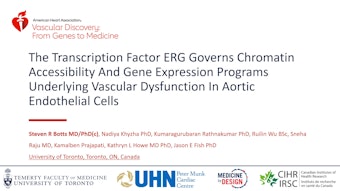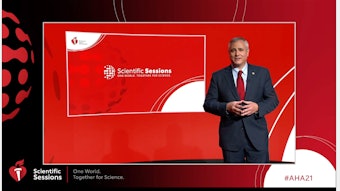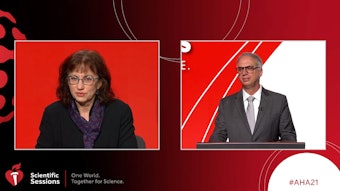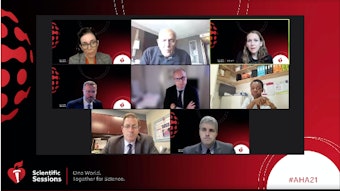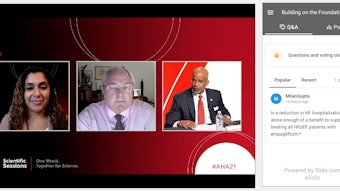Landmark trial changes the game for treatments in stable coronary patients

Two years out from the landmark ISCHEMIA trial that was presented at the 2019 Scientific Session, the methods for treating stable patients with coronary artery disease have changed in many ways.
“Managing Stable CAD in a Post-Ischemia World,” which takes place live 9:30-10:30 a.m. EST, Saturday, will take a closer look at those changes and how they can impact the decisions physicians make when it comes to treating those patients.
Gregg W. Stone, MD, director of academic affairs for the Mount Sinai Heart Health System in New York City, will answer the question of whether revascularization can reduce the rate of myocardial infarction among patients with certain types of lesions.
“Revascularization in patients who have had a heart attack saves lives, prevents further heart attacks, saves heart muscle and is the best way to treat those patients,” he said. “But what about patients with stable coronary disease, who have blockages that may cause angina, shortness of breath and other conditions? These patients have relatively low rates of death and heart attacks. And we’ve known for a long time that revascularization will make them feel better, but it has been less certain whether it would prolong their life or prevent heart attacks.”
Until recently there has been very little evidence that myocardial infarction was reduced in patients with stable coronary disease, Dr. Stone said, but there is a growing body of information which suggests that you can prevent heart attacks in the right kind of patients.
“The question is, who are these patients and what are the types of lesions that can benefit from revascularization?” he said. “It’s important we start to look beyond just the coronary angiogram and identify the specific type of arthrosclerosis and blockages in the heart to differentiate lesions that aren’t as dangerous from those prone to rupture and occlude the artery, causing irreversible loss of heart muscle, heart failure and death. Revascularization of these types of lesions (termed “vulnerable plaques”) may prevent myocardial infarction and death.”
Elsewhere in the session, Jacqueline Tamis-Holland, MD, FAHA, associate professor of medicine and cardiology at the Icahn School of Medicine at Mount Sinai, will tackle the question of “Guidelines and Clinical Trials: Do They Always Align?”
Dr. Tamis-Holland said guidelines include recommendations for care based on the results of the clinical trials, and therefore they should align. Sometimes, however, that is not the case.
“There are sometimes circumstances when the guidelines don’t align with clinical trial data,” she said. “For example, they sometimes don’t align if the clinical trials don’t all show consistent results. So, one might have to create a recommendation that is a balance of all data that are available. Additionally, since guidelines are only published once every 5 to 7 years, trial data will be published and change the way we practice before the guidelines are able to be updated. For this reason, they don’t always align.”
What that means in relation to the ISCHEMIA trial, according to Dr. Tamis-Holland, is that the clinical approach for managing patients with stable CAD has changed since the publication of the ISCHEMIA trial results. The information we now have based on this and other trials may inform future updates of the guidelines as well.
“I think the session as a whole will give us insight into the optimal management of patients with stable ischemic heart disease and help provide us with an understanding of best practices based on data from clinical trials,” she said. “The guidelines for managing stable ischemia may differ from the way one may consider managing ischemia in contemporary times based on the new trial data.”
In addition to Drs. Gregg and Tamis-Holland, Yulanka Castro Dominguez, MD, will present a case of a patient with chest pain; Wael A. Jaber, MD, will address the question of whether stress tests are still relevant when dealing with chest pain; and Akiko Maehara, MD, will explore intravascular imaging.
Visit Scientific Sessions Conference Coverage for more articles.


